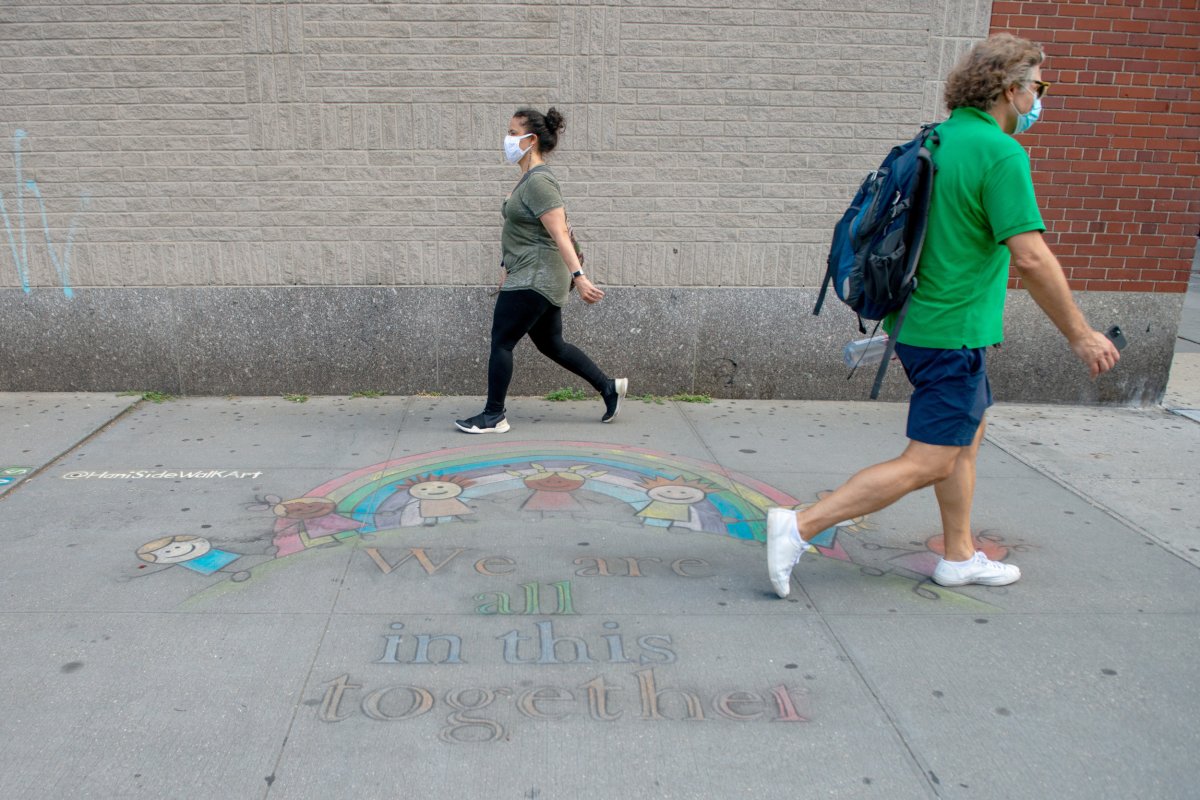Allowing the coronavirus to spread in an attempt to make people immune without the aid of a vaccine would be "very dangerous," a World Health Organization (WHO) official has warned.
Maria Van Kerkhove, the WHO's technical lead on the COVID-19 pandemic, made the comments during a press conference on Thursday.
A journalist asked Van Kerkhovewhether achieving herd immunity is the only way to end the pandemic. Normally, she explained, the term herd immunity relates to vaccination, and what proportion of a population needs to receive one in order for enough people to be immune so an infectious disease can no longer spread.
However, she said achieving herd immunity by "just letting a virus run" and "trying to reach herd immunity naturally would be very dangerous because a lot of people would die."
She in this scenario "many people are infected, many people will need hospitalizations, and many people will die."
Instead, Van Kerkhove said the WHO is aiming for the development of a safe and effective vaccine that can protect a large proportion of the population and stop the virus from spreading.
Almost 200 vaccines against the coronavirus are under development, according to the WHO. It is hoped at least one will be proven to be safe and effective by the end of the year.
Dr. Soumya Swaminathan Yadav, chief scientist at the WHO, echoed Van Kerkhove concerns at the briefing. She said no infectious diseases have controlled via so-called "natural immunity."
She said it would take a "very long time" to achieve herd immunity if the virus was allowed to spread, and the infection would go "on and on and on in waves."
Swaminathan Yadav said the best way to achieve immunity would be through a vaccine.
It remains unclear what percentage of the population would need to be resilient against the virus to achieve herd immunity, she said, but added that in general the more transmissible a virus the higher the proportion of people need to be immune.
She pointed to measles, where one infected person can pass the virus to 15 to 20 people on average, meaning 95 percent herd immunity is needed to prevent it spreading. For the coronavirus, a sick individual is thought to spread it to two or three others, or more in a crowded setting. So it is estimated that 65 to 70 percent of the population would need to be immune to achieve herd immunity, she said.
"To get to that level across the world and across all populations, urban and rural and age groups, one can do it most safely and efficiently through a vaccine," she said.
The idea of achieving "natural" herd immunity was floated but later rejected by the U.K. government in the early days of the outbreak, and has been largely associated with Sweden's approach to tackling the pandemic.
The country has not explicitly stated this is its approach. But earlier this month, emails emerged showing Sweden's top epidemiologist brainstorming ways to achieve herd immunity.
Unlike other countries, Sweden did not enforce a lockdown to prevent the spread of the coronavirus, but instead offered guidance to citizens. Shops, restaurants, and gyms stayed open, but schools and universities closed to over-16s, and large-scale gatherings of more than 50 people were banned. Over-70s and those with COVID-19 symptoms were told to self-isolate.
Earlier this month, a commentary published in the Journal of the Royal Society of Medicine found that herd immunity had not materialized in Sweden.
The authors of the article wrote that while it was hoped that 40 percent of the population of Sweden's capital Stockholm would be carrying antibodies against the virus by May 2020, the figure was in fact around 15 percent.
This week, Van Kerkhove also addressed the possibility of re-infection after a man in Hong Kong marked the first documented case of a person catching the norovirus twice.
Speaking during a Q&A session, she said that it is not yet clear how strong a person's immune response to the coronavirus is and how long it will last.
Regarding reinfection she said it must be considered in the context of over 23.5 millions cases occurring worldwide. "We know that it's possible. But it is something that we knew could be possible based on our experience with other human coronaviruses," she said.

Uncommon Knowledge
Newsweek is committed to challenging conventional wisdom and finding connections in the search for common ground.
Newsweek is committed to challenging conventional wisdom and finding connections in the search for common ground.
About the writer
Kashmira Gander is Deputy Science Editor at Newsweek. Her interests include health, gender, LGBTQIA+ issues, human rights, subcultures, music, and lifestyle. Her ... Read more
To read how Newsweek uses AI as a newsroom tool, Click here.








